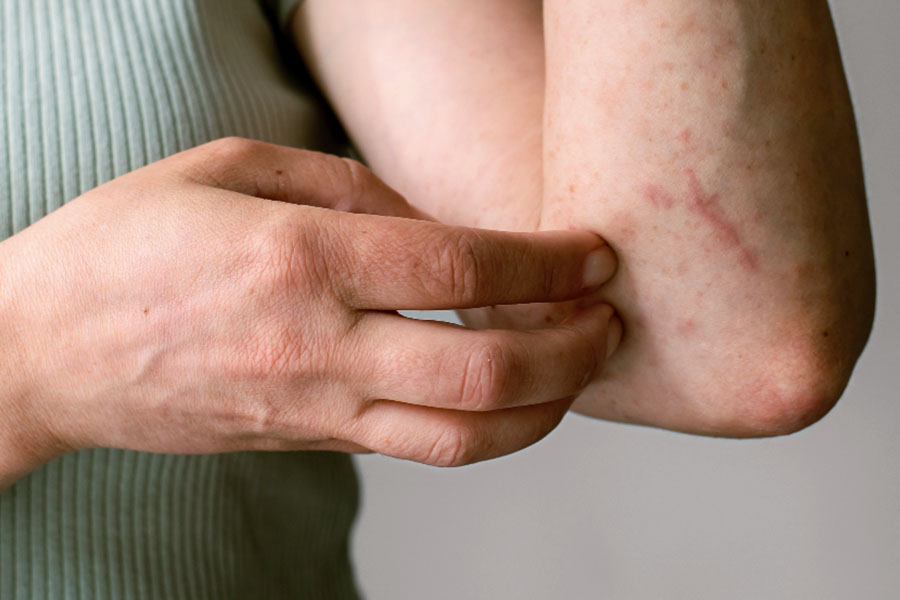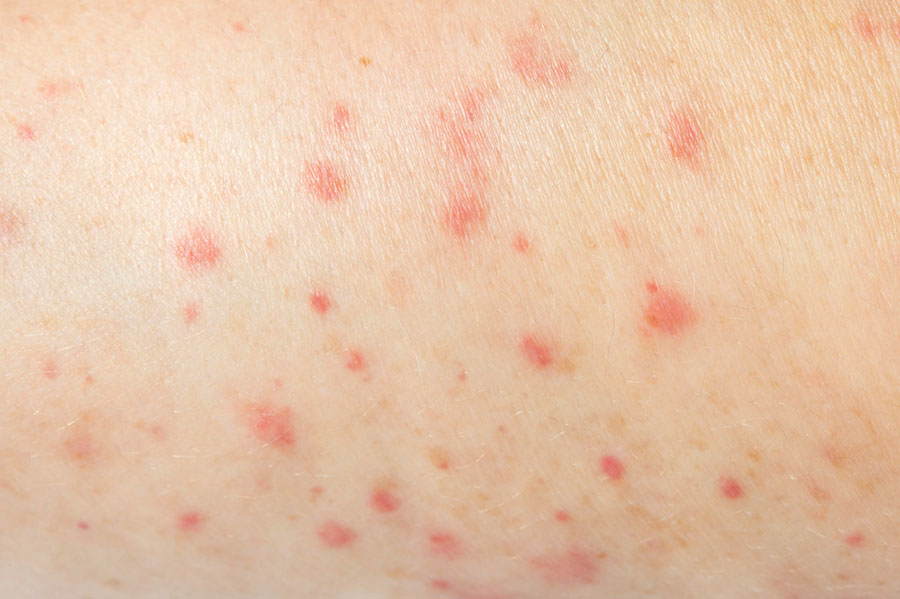Bed bug infestations are a nightmare for any homeowner. These tiny pests can quickly multiply and spread, leaving you covered in itchy, unsightly bites. While a few bites may seem like a minor inconvenience, can you get sick from too many bed bug bites?
This article dives deep into the potential health risks of being repeatedly bitten by bed bugs. We’ll explore the symptoms to watch for and discuss when medical attention may be necessary.
By understanding the dangers of multiple bed bug bites, you’ll be better equipped to protect yourself and your family from these persistent pests. The details may surprise you!
Can You Get Sick From Too Many Bed Bug Bites?
No, bed bugs themselves don’t transmit diseases that make you traditionally sick, like a fever or illness. However, having too many bites can cause indirect health problems. Their bites can cause itching, redness, and discomfort.
Excessive scratching of these bites can lead to secondary skin infections. In rare cases, some people may have allergic reactions to bed bug bites. If you experience severe symptoms or allergic reactions, it’s essential to seek medical attention.

Health Risks Linked to Bed Bug Bites
Can bed bug bites make you physically sick? Bed bug bites themselves do not make you sick, but excessive bites can lead to complications, triggering various health risks. Some people experience allergic reactions to bed bug bites, with minor reactions causing severe itching and inflammation. While more serious reactions may require medical attention.
Severe allergic reactions can result in breathing difficulties, dizziness, and, in rare cases, anaphylactic shock. Those with allergies should be cautious around bed bugs. Excessive scratching of bite areas can break the skin, allowing bacteria to cause infections such as impetigo, ecthyma, and cellulitis.
Allergic reaction and infection risk
Most people only experience minor skin irritation from bed bug bites. However, some may have allergic reactions to the bugs’ saliva, ranging from mild (excessive swelling and inflammation around bite sites) to potentially severe (breathing difficulties or anaphylaxis). Those with allergies must exercise extreme caution.
Excessive scratching of itchy bites can break the skin, allowing bacteria to enter and, as mentioned above, cause infections like impetigo, ecthyma, cellulitis, or MRSA. Signs of infection include pus, swelling, and red streaks. Seek immediate medical treatment if an infection is suspected.
Possibility of severe anemia – Rare but possible
For most, bed bug bites only result in minor blood loss. However, the elderly and people with anemia are at higher risk. With a major, uncontrolled infestation, blood loss can add up. Though very rare, excessive and prolonged bites could theoretically cause enough blood loss to require a transfusion in anemic individuals.
Fatigue, dizziness, and irregular heartbeats may occur. For the average healthy person, becoming severely ill is unlikely. Taking precautions like promptly treating bites reduces risks even further. However, certain groups may be more susceptible to complications.
Those with insect allergies or weakened immune systems face higher risks. The same applies to the elderly, young children, and anemic individuals. Vigilance is wise anytime a bed bug infestation is present.
Allergic Reactions Caused by Bed Bug Bites
Bed bug bites usually itch and irritate, but some people have allergic reactions. The immune system overreacts to proteins from the bug. This can cause intense itching, swollen and inflamed bites, or even hives – itchy welts anywhere on the body.
In very rare cases, a severe allergic reaction (anaphylaxis) can occur. This can bring difficulty breathing, swelling, dizziness, and rapid heartbeat. If you experience these symptoms, seek immediate medical attention. Treatment focuses on managing symptoms and preventing bites.
Antihistamines may help with itching and swelling, while calamine lotion or cool compresses may offer temporary relief. To eliminate the bed bugs, requires professional pest control to eradicate the infestation. By addressing the source and managing symptoms, you can effectively deal with allergic reactions to bed bug bites.
Potential Skin Infections
Scratching those pesky bed bug bites can lead to more trouble than just sore skin. While the bites themselves aren’t infectious, the constant itching may tempt you to scratch and break the skin.
This creates an open door for bacteria, commonly found on your skin and under your nails, to enter and thrive in the disturbed wound, triggering a localized infection.
If left untreated, the infection can worsen with redness, swelling, and even pus formation. Resist the urge to scratch and focus on managing the itch and eliminating the bed bugs – the true source of your discomfort.

Conclusion
Can you get sick from too many bed bug bites? An excessive number of bites can potentially lead to allergic reactions and infections. In rare cases, it can even cause anemia, requiring medical treatment.
We hope this article has helped you understand better the health risks of letting a bed bug infestation go unchecked. By being vigilant for symptoms, you can protect yourself and your loved ones.
Don’t hesitate to seek professional help promptly. Though these pests are persistent and difficult to eliminate, this knowledge is key to emerging unscathed from an infestation. Don’t let bed bugs make you ill.
